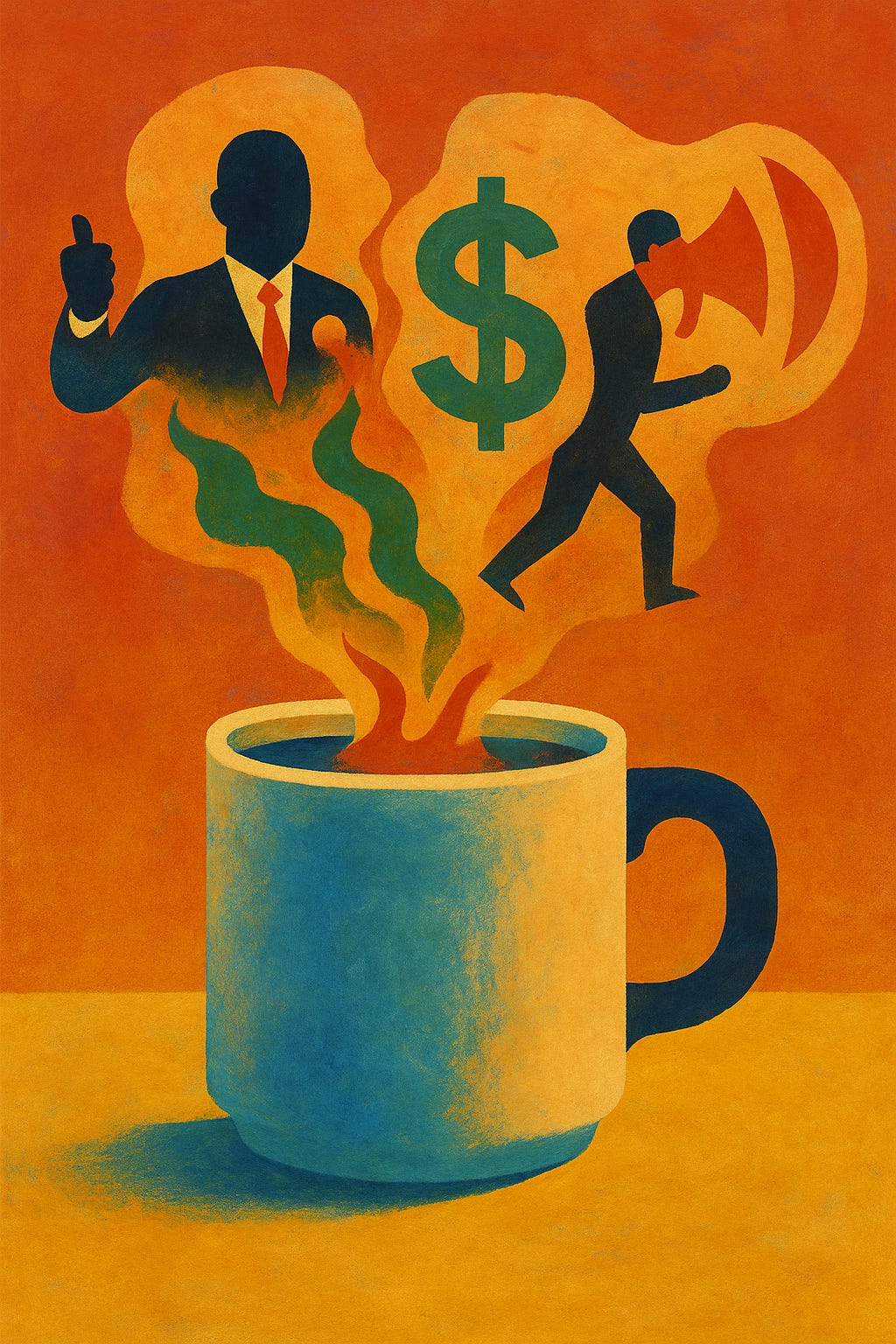The Parasocial State: How Cowardice, Debt, and Delusion Became a National Creed
And stop blaming Gen Z or the Millenials, Gen X and the Boomers are just as bad.
If you give even half a damn about free speech, subscribe. It means I can continue doing this without needing to ask a gender-neutral AI for spare change. I’m a suspended university professor, not a pundit barking from the cheap seats. The link is below, click it before the lawyers take it away.
Please subscribe to get at least three uncensored, impolite, fire-in-the-belly essays per week. Open comments, $6/month. Less than \ $4. USD Everyone says, “That’s just a cup of coffee.”
“The truth is that most politicians are middlemen between real power and manufactured consent.” — Tony Benn.
A peculiar neurosis has infected democratic societies—especially those that have prospered on peace, credit, and clickbait. It is the conviction that one can vote for a personality, not a policy. That one can cheer for a leader like a footballer, love them like a pop star, and follow them like a lifestyle coach, without bearing any responsibility for what they do.
We are living in the age of parasocial politics.
The term parasocial relationship was coined in 1956 by sociologists Donald Horton and Richard Wohl to describe one-sided emotional bonds between viewers and media figures. Viewers feel as if they “know” the celebrity, but the affection is unreciprocated. Now, transpose that to politics: voters project onto politicians feelings of trust, relatability, and affection, despite having no real relationship, no scrutiny of policy, and no knowledge of governance. The result? Governance by vibes.
But as Tony Benn warned, this doesn’t happen by accident. Manufactured consent—a concept developed by Edward S. Herman and Noam Chomsky—refers to the subtle machinery by which media, elites, and institutions engineer public agreement, not through censorship, but through the use of framing, omission, repetition, and spectacle.
In this paradigm, citizens are not informed participants in a republic, but consumers of curated narratives. Consent is not earned by evidence, but shaped by emotion. It is precisely this environment where parasocial politics thrives: in a fog of impression over inspection.
This is not a matter of generational blame. Boomers—those alleged paragons of thrift and civic virtue—led the charge with elbows up, voting themselves comfort at every turn: gold-plated pensions, capital gains exemptions, home equity windfalls, universal healthcare and subsidised everything. They racked up the tab and convinced themselves they were builders, not looters. And now? Their children inherit the moral hazard, the structural deficit, and the pious lectures about responsibility.
Today’s voters are no better. They demand pharmacare, climate subsidies, free tuition, faster trains, and housing miracles. They quote Scandinavia and ignore tax rates. They want Nordic benefits with Texan taxes. And if any politician dares to ask how we’ll pay for it? The response is parasocial: “He doesn’t care about people like me.”
Let us speak plainly. By 2035, Canada’s combined federal and provincial gross debt is expected to reach $4.67 trillion. Interest payments alone will consume $141 billion annually—more than is spent on health care. The debt-to-GDP ratio will surpass 112.8%, surpassing its level during the Great Depression and rivalling banana republics plagued by coups and currency crises.
And yet, no one will admit what this means: pain. Not for us, perhaps. But for our children. The future we are building for them is not a social contract. It’s a fiscal hostage note.
But make no mistake: this is not some unfortunate accident of history. It is a consequence of cowardice, emotionalism, and the permanent campaign. Modern politicians—especially in democracies—rarely govern. They perform. They brand. They emote. They build identity, not infrastructure. They are not punished for lying. They are punished for explaining.
Which brings us back to the poison of the parasocial: a citizenry that chooses leaders based on who they’d like to “have a beer with” is a citizenry unfit for self-government. It mistakes affect for action, sentiment for substance, and empathy for outcomes. It resents hard truths, punishes arithmetic, and falls for anyone who says “I feel your pain” while picking your pocket.







